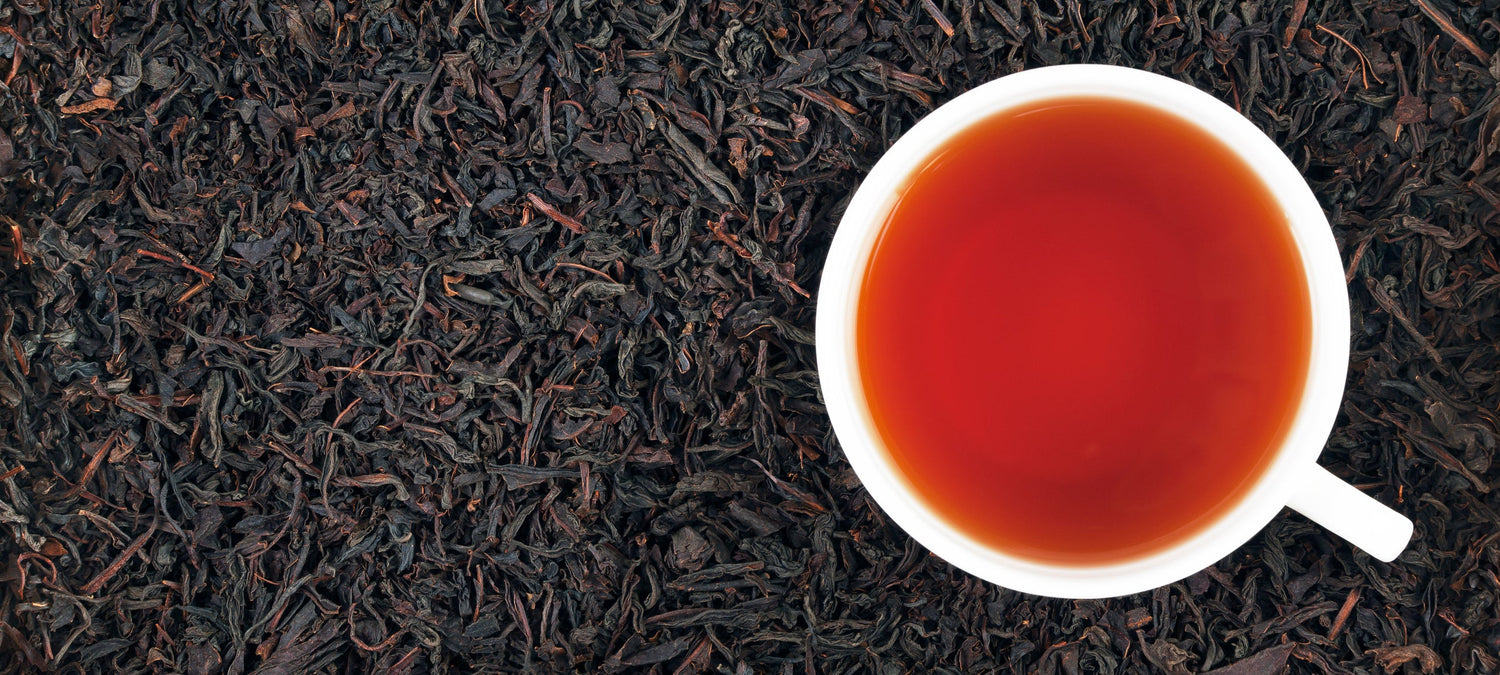Different Types Of Teas And Benefits
After water, tea is one of the most enjoyed beverages around the globe According to an estimate, about 159 million people in the US enjoy tea daily.
Tea is prepared from the leaves of a tea plant known as Camelia sinensis native to South Asia.
Tea has been used for thousands of years and introduced to the West in 17th century after the export of Chinese tea by Dutch East India Company.
There are different types of teas each of which possess unique flavor and health promoting effects. We will discuss here various types of teas including true teas and herbal teas.
Green Tea
Green tea is obtained from an evergreen shrubby plant known as Camelia sinensis, and is considered as the most refreshing beverage worldwide.
Green tea leaves are not oxidized, contain very low quantities of caffeine and are packed full of antioxidants. These antioxidants protect the body from harmful effects of free radicals.
Aside from antioxidants, this tea contains considerable quantities of minerals like calcium, magnesium, potassium, phosphorus, copper and manganese which are required for optimal functioning.
Green tea is most commonly used to lose weight and burn body fats because the antioxidants and epigallocatechin gallate (EGCG) boost metabolism and suppress appetite. They induce satiety and help you eat less calories which in turn help lose weight.

Antioxidants contained in green tea can help lower blood cholesterol levels, and beta blockers and ACE inhibitors in green tea help reduce blood pressure and promote heart health.
Green tea also has potential to reduce the risk of various types of cancers including breast cancer, prostate and colorectal cancer.
There are different types and flavors of green tea which include sancha, genmaicha, biluochun, laoshan, gyokuro and matcha tea.
Green tea is a great choice if you want to limit caffeine and refresh your mind. It is suggested to consume 2-3 cups of this tea at any time in a day.
Black Tea
Black tea is obtained from the same plant as green tea, but differs in method in which it is processed. During processing the tea leaves are exposed to oxygen rich air and this oxidation process turns the color of leaves from green to black.
Black tea has a characteristic strong flavor and contains higher caffeine content compared to other teas of the same plant. Black tea offers 47 mg of caffeine per cup which is much lower than coffee providing 95 mg of caffeine.
Black tea is abundant in polyphenolic compounds like flavonoids, flavonols, quercetin, catechins, kaempferol and gallic acids. All these compounds are potent antioxidants which prevent oxidative stress and reduce the risk of chronic diseases including heart diseases, diabetes and cancer.
Black tea also has strong antibacterial properties which prevent infections and can help improve skin conditions like eczema, psoriasis, acne and skin irritation.
In addition to antioxidant and anti-bacterial properties, black tea also has anti-inflammatory activities which help relieve inflammation and alleviate the symptoms of osteoarthritis and rheumatoid arthritis.
So, in conclusion, consumption of black tea boosts immunity by preventing infections, relieving inflammation and reducing the risk of chronic diseases.
White Tea
White tea, one of the least fermented teas and obtained from leaves of a tea plant called Camellia sinensis.
Tea leaves are harvested before they are fully mature and are wrapped in white hairs which gives it the name “white tea”.
White tea shines in its antioxidants which prevent oxidative damage and reduce the risk of chronic diseases.
Polyphenolic compounds in white tea also possess strong antioxidant properties which promote heart health, help you lose weight and body fats, prevent cancer, reduce the risk of diabetes and osteoarthritis.

White tea is rich in fluorides, tannins and catechins which provide strength to teeth, prevent bacterial infections and restrict plaque formation.
It is suggested to consume two to four cups of white tea in a day to reap maximum benefits.
Oolong Tea
Oolong tea, a traditional Chinese tea obtained from leaves of a plant called Camelia sinensis.
Oolong tea possesses qualities of both green tea and black teas like increasing weight loss and reducing stress.
This tea is a good source of vitamins, minerals and antioxidants. Polyphenolic compounds like thearubigin, theaflavin and EGCG. It also contains L-theanine, an amino acid which are known to improve relaxation and cognitive ability.
Consumption of oolong tea is greatly associated with lowering blood glucose and cholesterol levels which promote heart health.
There is about 38 mg of caffeine in a cup of oolong tea which has stimulatory effects on the brain, reduces stress and anxiety and improves cognitive performance.
Antioxidants in oolong tea may help prevent oxidative stress, prevent cancer, inhibit tooth infections and improve bone mineral density.
In order to benefit from oolong tea, you can take 4-6 cups in a day, however, pregnant women should limit the consumption to 2-3 cups per day.
Pu-Erh Tea
Pu-Erh tea, a traditional Chinese tea obtained from leaves of a tree called “wild old tree”. It is prepared from the leaves of a plant which is 5 years old and attains earthy flavor due to fermentation.
This tea is enjoyed because of its unique taste and surprising health benefits.
Pu-erh tea is rich in catechins and epigallocatechin-3 gallate which are powerful antioxidants and act as scavengers of free radicals. These old tree leaves also contain probiotics which regulate blood sugar levels and boost digestive health.
It has beneficial effects in reducing weight, burning fat, lowering cholesterol levels, promoting liver health and reducing the risk of cancer. Pu Erh tea should not be consumed on an empty stomach.
It is suggested not to take the tea 2 hours before bedtime as it stimulates the brain and may affect your sleep.
Rooibos Tea
Rooibos tea is picking up steam as a delicious, flavorful and caffeine free beverage alternative to black tea.
It is obtained from the leaves of a shrubby plant known as Aspalathus linearis, grown in South Africa. These leaves are exposed to oxygen rich air which turns their color from green to red- brown.
Rooibos tea is low in tannins and rich in bioactive compounds like aspalathin and quercetin which are strong antioxidants and possess surprising health benefits.
These antioxidants have potential to reduce cholesterol, LDL levels and regulate blood pressure by inhibiting angiotensin converting enzymes.
Aspalathin, an antioxidant present in rooibos tea, is greatly associated with reducing blood sugar levels, reducing the risk of type 2 diabetes by regulating blood glucose levels and increasing insulin sensitivity.
They may also improve bone health, digestion and skin health.
It is suggested to take 2-3 cups of rooibos tea a day to benefit from it.

Herbal Teas
Herbal tea also known as tisanes are prepared by steeping different parts of plants (roots, leaves, barks, fruits and flowers) in boiling water.
These herbal infusions are not obtained from tea plants like green, black, white and oolong tea and are not true teas. They differ in taste and flavor according to the ingredients used.
Herbal tea is the wisest way to combine unique qualities of different plants in a single cup. Aside from flavor, these teas offer a variety of health benefits such as calming the mind, reducing the risk of diseases like diabetes and cancer, improving digestion, helping you lose weight and burn fat, and preventing infections.
Herbal teas like Yerba Mate, peppermint, hibiscus, and ginger are most commonly used for weight loss.
Teas for relieving cold and flu include ginger tea, chamomile, lemongrass, licorice, cinnamon and licorice root tea.
For stress reduction, the best herbal teas include mint tea, chamomile, lavender, rose and matcha tea.
Immunity boosting herbal teas include turmeric tea, ginger, licorice root, chamomile, lemongrass, hibiscus and black tea.
While Herbal teas are safe to use in moderate quantities, it is always best to review the use of these teas with your doctor if you are pregnant, nursing, or using these teas to enhance treatment of medical issues.
Bottom Line
Teas are widely used beverages around the world and have been used for thousands of years because of their unique flavor and healthful properties.
Teas possess strong antioxidant, antibacterial and anti-inflammatory properties which reduce the risk of chronic diseases and boost immunity.
Drinking tea refreshes your mind and body, and keeps you hydrated. Inhaling the steam of tea helps you loosen congestion and clears airways.





